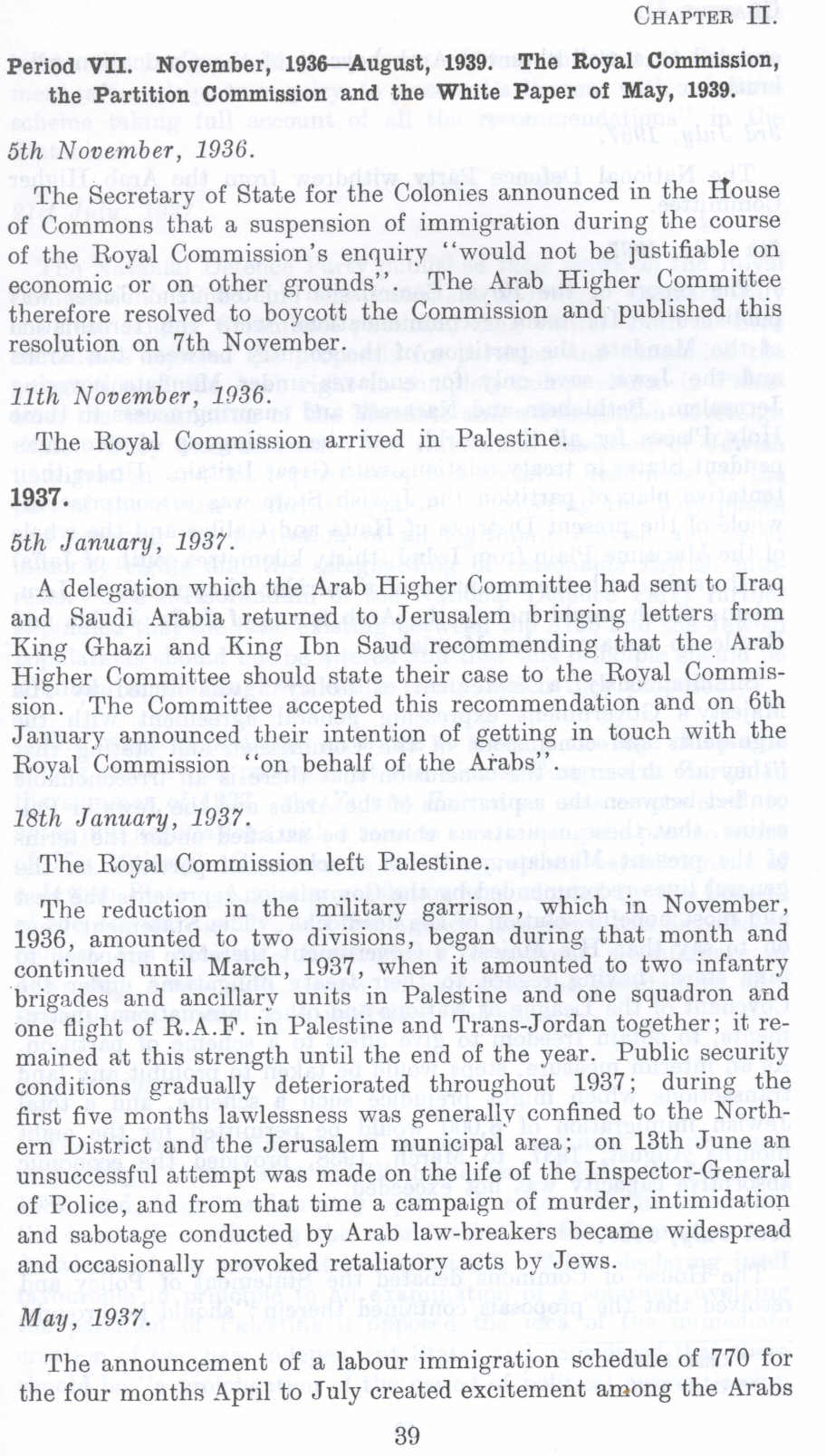| Prev | Next |  |
| Prev | Next |
| PalestineRemembered | About Us | Oral History | العربية | |
| Pictures | Zionist FAQs | Haavara | Maps | |
| Search |
| Camps |
| Districts |
| Acre |
| Baysan |
| Beersheba |
| Bethlehem |
| Gaza |
| Haifa |
| Hebron |
| Jaffa |
| Jericho |
| Jerusalem |
| Jinin |
| Nablus |
| Nazareth |
| Ramallah |
| al-Ramla |
| Safad |
| Tiberias |
| Tulkarm |
| Donate |
| Contact |
| Profile |
| Videos |
The Royal Commission, the 1939 Partition Commission, and the White Paper of May, 1939 in Palestine. British Mandate: A Survey of Palestine: Volume I - Page 39 |
Disclaimer
The above documents, article, interviews, movies, podcasts, or stories reflects solely the research and opinions of its authors. PalestineRemembered.com makes its best effort to validate its contents.


Post Your Comment
*It should be NOTED that your email address won't be shared, and all communications between members will be routed via the website's mail server.
Period VII. November, 193&-August, 1939. The Royal Commission, the Partition Commission and the White Paper on May, 1939.
5th November, 1936.
The Secretary of State for the Colonies announced in the House of Commons that a suspension of immigration during the course of the Royal Commission's enquiry "would not be justifiable on economic or on other grounds". The Arab Higher Committee therefore resolved to boycott the Commission and published this resolution on 7th November.
11th November, 1936.
The Royal Commission arrived in Palestine.
1937.
5th January, 1937.
A delegation which the Arab Higher Committee had sent to Iraq and Saudi Arabia returned to Jerusalem bringing letters from King Ghazi and King Ibn Saud recommending that the Arab Higher Committee should state their case to the Royal Commission. The Committee accepted this recommendation and on 6th January announced their intention of getting in touch with the Royal Commission "on behalf of the Arabs".
18th January, 1937.
The Royal Commission left Palestine.
The reduction in the military garrison, which in November 1 1936, amounted to two divisions, began during that month and continued until March, 1937, when it amounted to two infantry brigades and ancillary units in Palestine and one squadron and one flight of R.A.F. in Palestine and Trans-Jordan together; it. remained at this strength until the end of the year. Public security conditions gradually deteriorated throughout 1937; during the first five months lawlessness was generally confined to the Northern District and the Jerusalem municipal area; on 13th June an unsuccessful attempt was made on the life of the Inspector-General of Police, and from that time a campaign of murder, intimidation and sabotage conducted by Arab law-breakers became widespread and occasionally provoked retaliatory acts by Jews.
May, 1937.
The announcement of a labour immigration schedule of 770 for the four months April to July created excitement among the Arabs
Page 39